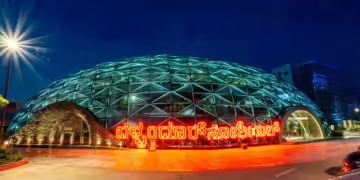2019/03/05
Paris – Total announces that it has signed the definitive agreements with Novatek for the acquisition of a direct 10% interest in Arctic LNG 2, a major liquefied natural gas development led by Novatek on the Gydan Peninsula, Russia.
Taking into account Total’s 19.4% stake in Novatek and Novatek’s intention to retain 60% of the project, the Group’s overall economic interest in this new LNG project will be approximately 21.6%. Should Novatek decide to reduce its participation below 60%, Total will have the possibility to increase its direct share up to 15%.
Novatek and Total also agree that Total will have the opportunity to acquire a 10 to 15% direct interest in all Novatek’s future LNG projects located on the Yamal and Gydan peninsulas. .
“We are delighted to have concluded the definitive agreements for our entry into this new world class LNG project based on the vast Russian gas resources alongside our partner Novatek. Arctic LNG 2 builds on the success of Yamal LNG and will introduce several innovative solutions to further increase competitiveness,” commented Patrick Pouyanné, Chairman and CEO of Total. “Arctic LNG 2 fits into our strategy of growing our LNG portfolio through competitive developments based on giant low cost resources primarily destined for the fast growing Asian markets.”
With production capacity of 19.8 million tonnes per year (Mt/y), or 535,000 barrels of oil equivalent per day (boe/d), Arctic LNG 2 will develop over 7 billion boe of resources in the Utrenneye onshore gas and condensate field. The project will involve installation of three gravity-based structures in the Gulf of Ob on which three liquefaction trains of 6.6 Mt/y each will be installed.
Arctic LNG 2 production will be delivered to international markets by a fleet of ice-class LNG carriers that will be able to use the Northern Sea Route and a transshipment terminal in Kamchatka for cargoes destined for Asia and one close to Murmansk for those cargoes destined for Europe.
The project’s final investment decision is expected to be taken in the second half of 2019, with plans to start up the first liquefaction train in 2023.










































